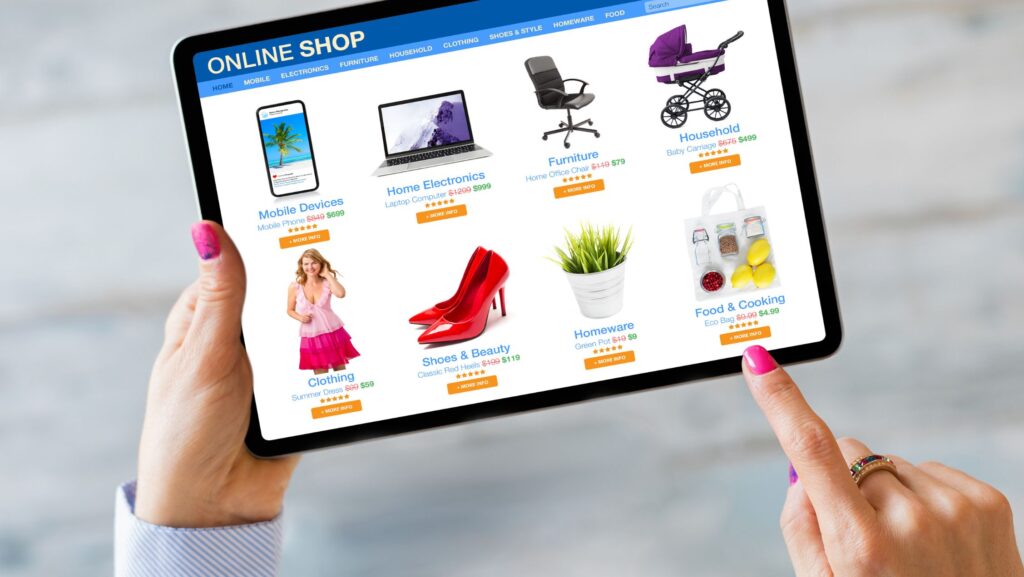An online payment gateway is an essential service that connects the world’s merchants and UK customers and makes transactions easy and smooth. It’s a necessarytool for every individual who wants to remain competitive and provide the best e commerce experience to their customers.
What is a Payment Gateway?
Simply put, a payment gateway is a digital service that performs a similar role to a point-of-sale terminal in physical stores. The technology acts as an intermediary between online shops and banks, forwarding secure payment information in a simple, secure way for payment data processing. The processor encrypts sensitive payment information, such as bank card details and bank account information, to offer the highest customer security when processing payments online in an ecommerce store.
Modern payment processors do much more than simply process payments. They verify the authenticity of different payment details, detect fraudulent transactions, and manage cash flows between the various parties.
How Payment Gateways Work
Various payments through a gateway take seconds but involves quite a number of important steps. It begins when the cardholder enters data to the payment on the website of the merchant. This is where the gateway payment solutions kick in. It receives this information and forwards it to the processing center. The request is passed to the acquiring bank of the merchant. The bank then forwards it to card networks, i.e., Visa or Mastercard, connecting gateways and merchants.
The online payment system asks the buyer’s card issuer to verify that there are funds and approve or reject the transaction, following internationally recognised standards. The response goes down the chain all the way, and the buyer is notified of successful payment or payment rejection.
Payment Processing Overview
There are three major stages of the payment flow:
- Authorization;
- Authentication;
- Settlement.
During the authorization step, the system ensures that the purchaser has sufficient funds in their account to proceed with the purchase. Authentication ensures that the person paying is the owner of the payment instrument. Settlement is the final step, which involves the actual transfer of money from the buyer to the merchant when UK businesses take online payments. This typically occurs within one to three business days, completing the online checkout and payment experience.
Types of Payment Gateways
There are two major gatewaytypes today: hosted payment gateways and integrated payment gateways. They both have their respective features.
Hosted Payment Gateways
Hosted gateways redirect customersto an external payment page to complete the transaction. A common example of a hosted gateway is PayPal. The main advantages of this type are low technical difficulty during setup for the store and a high level of security. This is because the trusted payment provider assumes the whole responsibility of data protection.
Integrated Payment Gateways
Integrated solutions allow customers to pay without being taken to another online payment page. The entire process of payment is conducted directly on the store’s website, so it is a more seamless user experience. For example, a system like Stripe payment gateway offers all the tools necessary for closely integrating payment functionality into an online store.
Key Features of a Payment Gateway
Payment gateways and payments processors are contemporary solutions for retailers to help them stay competitive in the e-commerce world. A lot depends on the particular system that one chooses to utilize. Nevertheless, there are some key features that are common to all of them.
Security and Compliance
Security remains one of the top priorities of any best payment gateway. In 2026, most reputable providers comply with the PCI DSS standard, which has strict requirements for processing and storing bank card data. Besides, contemporary gateways implement multi-level encryption, data tokenization, and advanced fraud detection systems.
Payment Processing Fees
UK payments gateways charge payment processing fees. The charge depends on the supplier and number of transactions. The price typically includes a commission on the transaction amount and a flat fee per transaction. You can negotiate more favorable terms if you are a large company with high sale volumes. Ensure you factor in all the possible charges: monthly subscription charges, setup charges, international transaction charges, refund fees, and currency conversation costs.
Popular Payment Methods for Ecommerce in 2026
There are several popular ecommerce platforms available in 2026. Which one you utilize depends on your business type and needs. They typically fall into two general categories.
| Card Payments | Alternative Payment Platform |
| Visa, MasterCard, Amex | Apple Pay, Google Pay, Samsung Pay |
| 2-3 seconds processing | Instant authorization |
| Universal acceptance | Growing acceptance |
| Requires card details entry | One-tap checkout |
| Works everywhere | Bank online transactions |
Card Payments
Bank card payments remain a traditional and popular choice. Visa and MasterCard process billions of transactions annually, especially with regard to contactless and virtual payments. This allows for fast transactions with a high level of security.
Alternative Payment Methods
Alternatively, there are e-wallets such as Apple Pay, Google Pay, and Samsung Pay. They have also gained popularity with customers due to their ease of use.

There are also bank transfers, and you can send money instantly without any fees. Cryptocurrency is also available, and it is gradually being accepted in mainstream business.
Choosing the Right Payment Gateway
Choosing a payment gateway provider is a significant choice that can be crucial to your e-commerce business prosperity. No single gateway suits all business needs. The choice depends upon your needs.
Transaction Fees and Costs
When selecting a payment solution, be sure to carefully examine the overall cost structure. Not only compare the regular transaction processing rates but also compare any additional fees. For a start-up business with low sales volume, it may be cheaper to choose a provider with no monthly fee, even if the transaction fee is slightly higher.
Supported Payment Methods
Make sure the chosen gateway supports all the payment methods that are common for your target audience. If you’re planning to sell internationally, check for the local payment methods available in different countries. Flexibility in the choice of payment method directly affects conversion and sales volume.
Top Payment Gateways for Ecommerce
There are 7 best payment gateways and payment options out there. Each payment processing company has a list of features and fees. Each one is superior in some ways and ideal for specific businesses.
1. PayPal
PayPal is a payment services familiar to just about anyone who’s ever made an online purchase. The payment gateway provider offers service in more than 200 countries and accepts dozens of currencies, e.g. USD, EUR, GBP, AUD, CAD, etc. Buyers adore PayPal because it protects buyers, and sellers like the fact that they can receive range of payments.
2. Stripe
Stripe is popular among developers because of its excellent API and well-documented. The website supports a massive list of payment methods and stays compliant with all the latest security requirements all by itself. If you need a subscription or recurring payments, all you need to do is get it working out of the box.
3. Square
Square was initially focused on providing POS solutions for small retailers and cafés, but has since expanded into online payments. The greatest advantage is there are no hidden fees and a ridiculously simple setup. Even if you are completely tech-illiterate, you can master the payment gateway use of Square in a few hours.
4. Carteza
Carteza is the best online payment gateway solution designed for businesses that require a high-powered system with excellent security. This new payment gateway handles high volumes of online payments in the UK with ease and can accommodate businesses that have outgrown more basic solutions.
5. Authorize.Net
Authorize.Net has been in business for more than two decades. It seamlessly integrates with WordPress, Magento, and other familiar payment processing platforms. If stability and reputation are vital to you, this is a suitable option.
6. Adyen
Adyen collaborates with big brands like Uber and Netflix, and they enable you to make customisable payment processing on a per-country basis, dramatically boosting sales. They also have great analytics and high-level fraud protection. But this is only suitable for high-turnover big businesses.
7. Braintree
It’s a PayPal company but less stringent. Within a single dashboard, you can accept PayPal payments, Venmo, and many other wallets. No hidden fees and everything upfront transparent. Great option for growing businesses.
Integrating a Payment Gateway into Your Ecommerce Site
The integration itself depends on the gateway type and selected e-commerce solution. Most of the popular CMSs, i.e., WordPress with WooCommerce, Shopify, or Magento, have instant payment provider plugins for major payment providers. Custom implementation will necessitate the use of a programmer.
Conclusion
The payment gateway choice is a strategic decision that will make or break your e-commerce operation. As of 2026, the market offers many solutions for companies of any size and needs. Assess your needs, rank solutions by function and price, and choose a provider that will grow with your business. Well-implemented seamless payment infrastructure will ensure secure transactions, an improved user experience, and a sound foundation of e-commerce development.



